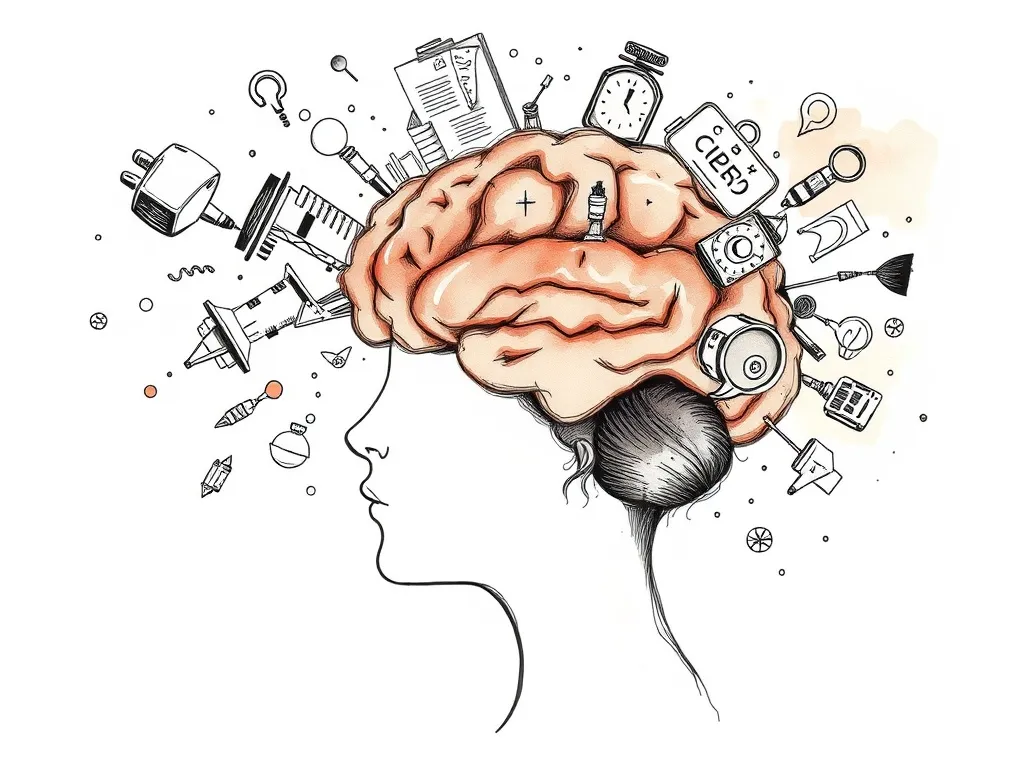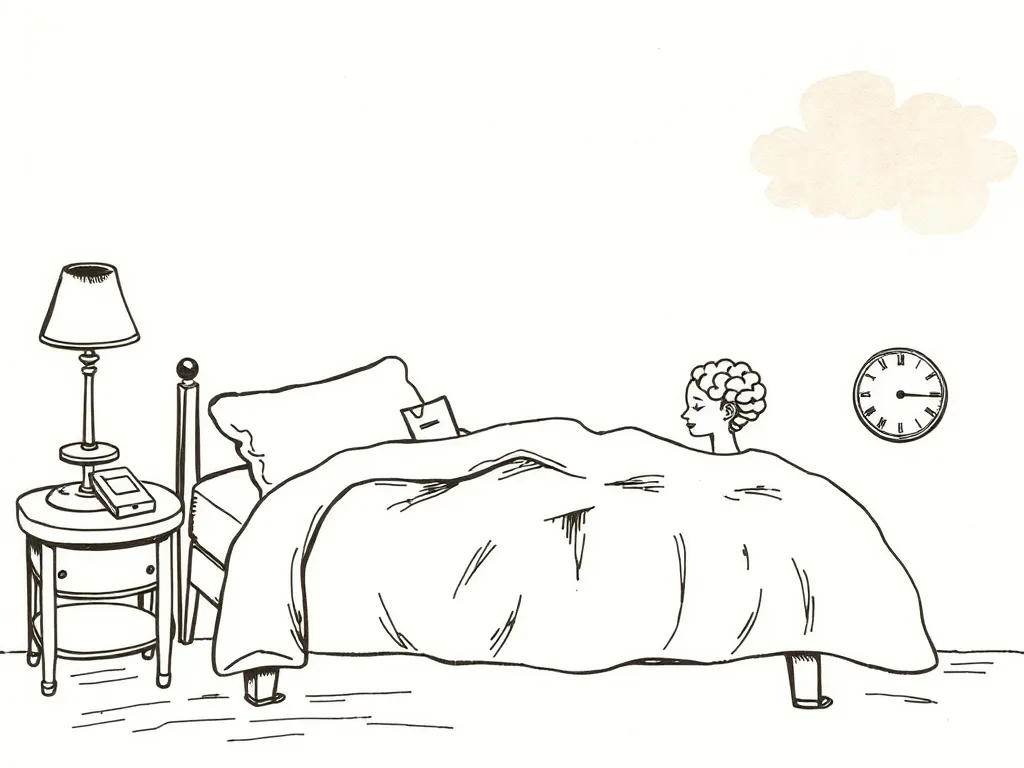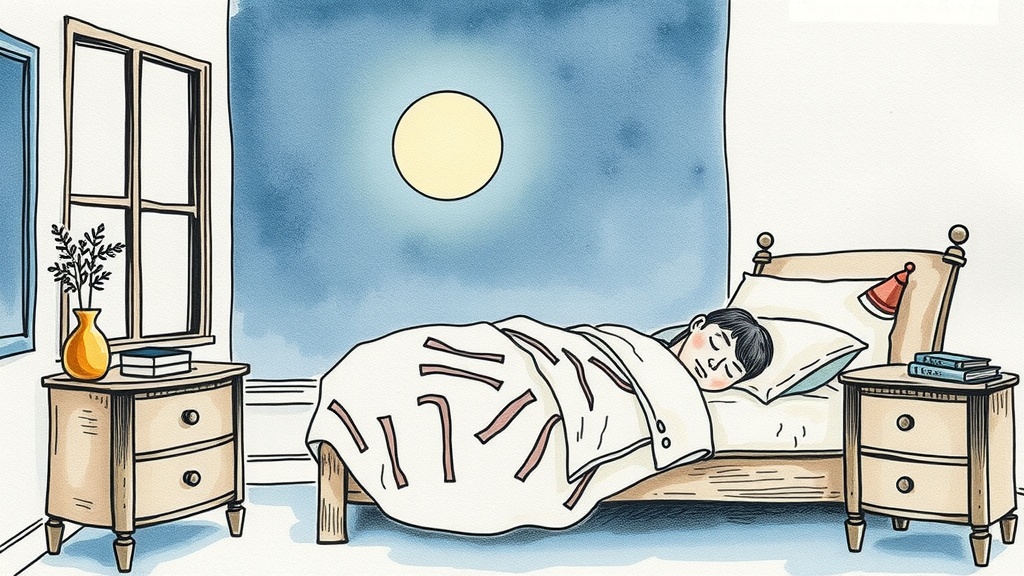· Don Schmidt · Guides · 11 min read
From Exhaustion to Rest: Applying CBT-I Principles for New Parents in Alberta
New parents in Alberta, conquer exhaustion with CBT-I! Learn evidence-based strategies to improve sleep quality, manage anxiety, and reclaim your rest.

Navigating the Sleep Deprivation Storm: CBT-I for New Parents in Alberta
New parenthood is a joyous, transformative journey, but it often comes hand-in-hand with an unexpected and often overwhelming companion: sleep deprivation. For new parents in Alberta, the struggle to find consistent, restorative sleep can feel relentless, impacting not just physical health but also mental well-being, relationships, and the overall enjoyment of this special time. The constant demands of a newborn, coupled with hormonal shifts, anxiety, and a complete upheaval of routine, can easily lead to chronic sleep issues that go beyond just feeling tired. It’s not just about getting less sleep; it’s about the quality and consistency of the sleep you do get. Many parents find themselves caught in a cycle of exhaustion, where the harder they try to sleep, the more elusive it becomes. This is where Cognitive Behavioral Therapy for Insomnia (CBT-I) offers a beacon of hope.
Understanding the Unique Sleep Challenges of New Parents
The sleep struggles of new parents are distinct. Unlike temporary bouts of insomnia, parental sleep deprivation is often chronic and fragmented. Newborns require feeding and comforting around the clock, meaning parents rarely experience long stretches of uninterrupted sleep. This fragmentation, combined with the stress and anxiety of new responsibilities, can disrupt the body’s natural sleep-wake cycle (circadian rhythm) and perpetuate feelings of exhaustion. Hormonal changes, particularly postpartum, can also play a significant role in a mother’s sleep architecture. For fathers, the shift in routine and increased responsibilities can similarly impact sleep quality. The constant vigilance, worry about the baby’s safety, and the “what if” scenarios often lead to a racing mind when finally in bed, making it impossible to switch off. These factors contribute to a pattern of learned insomnia, where even when the opportunity for sleep arises, the body and mind are too wired to take advantage of it.
What is CBT-I and Why Is It Effective for Parental Sleep?
Cognitive Behavioral Therapy for Insomnia (CBT-I) is a highly effective, evidence-based treatment for chronic insomnia. Unlike sleeping pills, which offer a temporary fix, CBT-I addresses the underlying thoughts, feelings, and behaviors that contribute to sleep problems. It’s not just a set of tips; it’s a structured program designed to re-educate your brain about sleep. For new parents, CBT-I is particularly beneficial because it offers sustainable strategies that can be adapted to the unpredictable nature of caring for an infant. It acknowledges that while you can’t control your baby’s sleep patterns, you can gain significant control over your own response to sleep opportunities and challenges. By tackling the cognitive (thought patterns) and behavioral (habits) components of insomnia, CBT-I helps parents break the cycle of sleep anxiety and exhaustion, fostering better sleep habits even amidst chaos. If you’re looking for a comprehensive guide to CBT-I sleep therapy specifically designed for new parents, resources are available to help you understand its core principles and applications.
Core Principles of CBT-I Adapted for New Parents
CBT-I comprises several key components, each designed to address different facets of insomnia. When applying these principles to the unique circumstances of new parenthood, some modifications and considerations are essential.
Sleep Hygiene (Reimagined for Parenthood)
Traditional sleep hygiene focuses on creating an ideal sleep environment and daily habits. For new parents, “ideal” is often a luxury. However, adapting these principles can still yield benefits:
- Optimize Your Sleep Environment: Even if your bedroom isn’t a silent sanctuary, make it as dark, quiet, and cool as possible. Blackout curtains, white noise machines (for your room, not just the baby’s), and comfortable bedding can make a difference.
- Establish a Relaxing Bedtime Routine (When Possible): Even 10-15 minutes of quiet time before attempting sleep—reading a book, gentle stretching, or deep breathing—can signal to your body that it’s time to wind down. Avoid screens right before bed.
- Mindful Napping: Short, strategic naps (20-30 minutes) can be restorative, but avoid long or late-day naps that might interfere with nighttime sleep. For new parents, “nap when the baby naps” is sound advice, but avoid treating it as your main sleep opportunity.
Stimulus Control Therapy
This technique aims to re-associate your bed with sleep and sex only, breaking the link between your bed and wakefulness, frustration, or worry.
- Go to Bed Only When Sleepy: For new parents, this means waiting until you feel genuinely tired before getting into bed.
- If Awake for More Than 20 Minutes, Get Up: If you find yourself lying awake, worrying, or unable to sleep after about 20 minutes, get out of bed. Go to another quiet room and do something calming (read, listen to quiet music, stretch) until you feel sleepy again, then return to bed. This helps prevent your bed from becoming a place of anxiety.
- Maintain a Consistent Wake-Up Time: Even on days when you’ve had fragmented sleep, try to wake up around the same time. This helps regulate your body’s circadian rhythm. This is perhaps the most challenging, yet crucial, step for new parents.
Sleep Restriction Therapy (Cautious Application)
This counter-intuitive technique involves intentionally limiting time in bed to increase sleep drive and consolidate sleep. For new parents, this must be approached with extreme caution and ideally under the guidance of a professional, given the inherent sleep deficit. The goal is to maximize the efficiency of the sleep you do get.
- Calculate Sleep Efficiency: Track how much time you actually spend asleep versus how much time you spend in bed.
- Gradually Increase Time in Bed: Once your sleep efficiency improves, you can slowly increase the time you allocate for sleep.
- Never Restrict Sleep Below 4-5 Hours: Especially for new parents, severe sleep restriction can be dangerous. The aim is to make your sleep more efficient, not to cut down on essential rest. This component is more about making the most of the sleep windows you have rather than cutting back.
Cognitive Restructuring
This involves identifying and challenging unhelpful thoughts and beliefs about sleep (“I’ll never sleep again,” “I can’t function on this little sleep”).

- Identify Negative Thoughts: Become aware of the anxious thoughts that arise when you’re trying to sleep or when you wake up.
- Challenge and Reframe: Question the validity of these thoughts. Are they facts or just worries? Replace them with more realistic and helpful thoughts (“It’s normal for new parents to have broken sleep, I will get through this,” “I will rest when my baby rests”).
- Mindfulness and Acceptance: Learn to observe thoughts without judgment, acknowledging that it’s okay to feel tired but not letting the tiredness define your ability to cope. For parents struggling with chronic worry that fuels insomnia, exploring strategies for addressing anxiety-driven insomnia can be incredibly helpful.
Relaxation Techniques
These techniques help calm the mind and body, preparing them for sleep.
- Deep Breathing: Simple, controlled breathing exercises can reduce physiological arousal.
- Progressive Muscle Relaxation: Tensing and relaxing different muscle groups can release physical tension.
- Guided Imagery/Meditation: Using apps or recordings to guide your mind to a peaceful state.
Implementing CBT-I in Alberta: Finding Support
Navigating sleep issues as a new parent in Alberta means understanding the resources available. Many health professionals, including psychologists, therapists, and sleep specialists, are trained in delivering CBT-I. Alberta Health Services (AHS) may offer programs or provide referrals. Online CBT-I programs, sometimes covered by private insurance, also provide flexible access to structured therapy. When seeking support, look for practitioners with experience working with new parents or those who understand the unique demands of childcare. Remember, investing in your sleep is investing in your overall well-being and your capacity to care for your family. Specific resources are available offering valuable insights for new fathers seeking to improve their sleep, and equally, comprehensive guides on CBT-I specifically tailored for new mothers can make a significant difference.
Addressing Common Parental Sleep Challenges with CBT-I Principles
While CBT-I provides a strong framework, new parents face specific hurdles.
- Night Wakings: Instead of fighting them, accept them as part of the phase. Focus on making the return to sleep as efficient as possible. Use stimulus control: tend to the baby, then return to bed only when sleepy. Avoid checking your phone or engaging in stimulating activities during night feeds.
- Napping: If you’re able to nap, keep them short and early in the day. Use a timer. Don’t rely on naps to “catch up” on severe sleep debt; focus on improving nighttime sleep efficiency.
- Partner Support: If you have a partner, discuss splitting night duties to allow each parent dedicated, uninterrupted sleep blocks. This is crucial for applying sleep restriction and achieving consolidated sleep. Even short, guaranteed blocks of sleep can significantly reduce feelings of deprivation.
- Weaning/Sleep Training: As your baby grows, discussions about sleep training or night weaning will arise. These can be integrated with CBT-I principles to improve everyone’s sleep, but always prioritize the baby’s needs and consult with your pediatrician.
Beyond CBT-I: Holistic Well-being for New Parents

While CBT-I is powerful, it’s part of a larger picture of self-care.
- Nutrition and Hydration: Eating well and staying hydrated supports energy levels and overall health, impacting sleep.
- Gentle Movement: Regular, moderate physical activity can improve sleep, but avoid intense exercise too close to bedtime.
- Social Support: Don’t hesitate to lean on friends, family, or support groups. Sharing experiences can reduce feelings of isolation and stress.
- Professional Help: If feelings of anxiety, sadness, or overwhelming stress persist, especially if sleep issues are exacerbating them, seek professional help. Postpartum depression and anxiety are common and treatable.
Conclusion: Reclaiming Rest and Resilience
The journey of new parenthood is beautiful but undeniably exhausting. While perfect, uninterrupted sleep might feel like a distant dream, applying CBT-I principles offers a practical, sustainable path from chronic exhaustion to more restorative rest. By understanding how your thoughts and behaviors impact your sleep, and by making strategic adjustments, new parents in Alberta can regain a sense of control over their sleep, improve their well-being, and more fully embrace the joys of family life. Remember, prioritizing your sleep is not selfish; it’s essential for your health, your relationships, and your ability to be the best parent you can be.
Frequently Asked Questions About CBT-I for New Parents
Q1: Is CBT-I suitable for new parents who have very fragmented sleep due to night feedings?
A1: Yes, CBT-I is highly adaptable for new parents. While achieving long, uninterrupted sleep might not be immediately possible, CBT-I principles focus on improving the quality and efficiency of the sleep you do get. Techniques like stimulus control and cognitive restructuring help manage anxiety around wake-ups and optimize the return to sleep, even in short bursts. The goal is to make the most of limited sleep opportunities and prevent learned insomnia.
Q2: How long does it take for CBT-I to show results for new parents?
A2: Many individuals begin to see improvements in sleep quality and a reduction in sleep-related anxiety within 4-6 weeks of consistent application of CBT-I principles. However, for new parents, progress might be more gradual and non-linear due to the unpredictable nature of infant care. Consistency is key, and adapting the techniques to your unique circumstances will help achieve sustainable results over time.
Q3: Can I do CBT-I on my own, or do I need a therapist?
A3: While self-help CBT-I resources (books, apps, online programs) can be very beneficial and are a great starting point, working with a qualified therapist specializing in CBT-I is often more effective, especially for complex or long-standing sleep issues. A therapist can provide personalized guidance, help you adapt techniques to your specific challenges as a new parent, and offer support and accountability.
Q4: Is CBT-I safe while breastfeeding?
A4: Absolutely. One of the significant advantages of CBT-I is that it is a drug-free intervention, making it a safe and highly recommended option for breastfeeding parents. It focuses on behavioral and cognitive changes rather than medication, eliminating any concerns about drug transfer to breast milk.
Q5: What if my baby’s sleep patterns are constantly changing? How does CBT-I help then?
A5: CBT-I equips you with a robust toolkit to manage your response to inconsistent sleep, rather than solely focusing on changing the baby’s patterns. It helps you build resilience, reduce sleep anxiety, and optimize your sleep environment and habits for the moments when sleep is possible. Even small improvements in your ability to fall asleep quickly and reduce nighttime worry can significantly impact your overall well-being, even when fragmented sleep is unavoidable. The focus shifts from controlling external factors to controlling your internal reaction and maximizing your sleep efficiency.
Assess Your Sleep Quality Today
Take our My Sleep Health Score assessment to get personalized insights about your sleep patterns and discover how CBT-I can help you achieve better sleep.

Don Schmidt
15+ years of experience in sleep therapy and Cognitive Behavioral Therapy for Insomnia (CBT-I). Passionate about connecting individuals struggling with sleep disorders to evidence-based, non-medical treatment solutions. Author of hundreds of articles and comprehensive guides on sleep health, CBT-I techniques, and overcoming insomnia. When not helping clients achieve better sleep, you can find me hiking with my family and dogs or enjoying a good book.
Ready to connect with a provider?
Allow us to connect you with a provider who can help.



